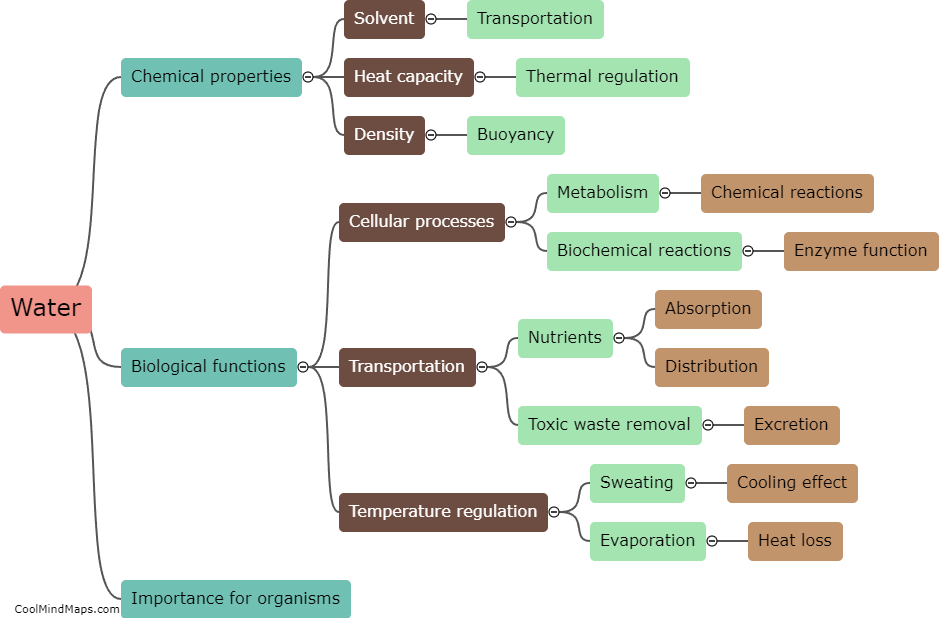What is the importance of water for living organisms?
Water is essential for the survival and functioning of living organisms. It serves as the primary constituent of cells, making up a significant proportion of an organism's body weight. Water plays a vital role in various biological processes, including metabolism, transportation of nutrients and waste, temperature regulation, and lubrication of joints. It acts as a solvent, facilitating chemical reactions and aiding in the transport of molecules. Water also serves as a medium for many essential substances, such as enzymes, hormones, and antibodies. In addition, it is involved in maintaining the stability of ecosystems and ensuring the survival of plants and animals. Without an adequate supply of water, living organisms would not be able to maintain their physiological functions, leading to dehydration, organ failure, and ultimately, death. Therefore, the availability and proper management of water are crucial for the well-being and survival of all living organisms.

This mind map was published on 11 September 2023 and has been viewed 88 times.











